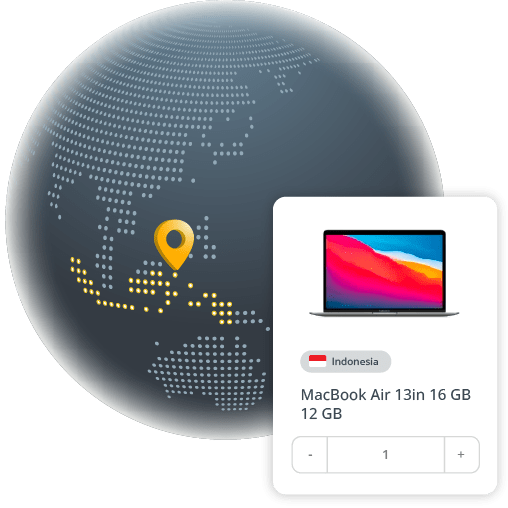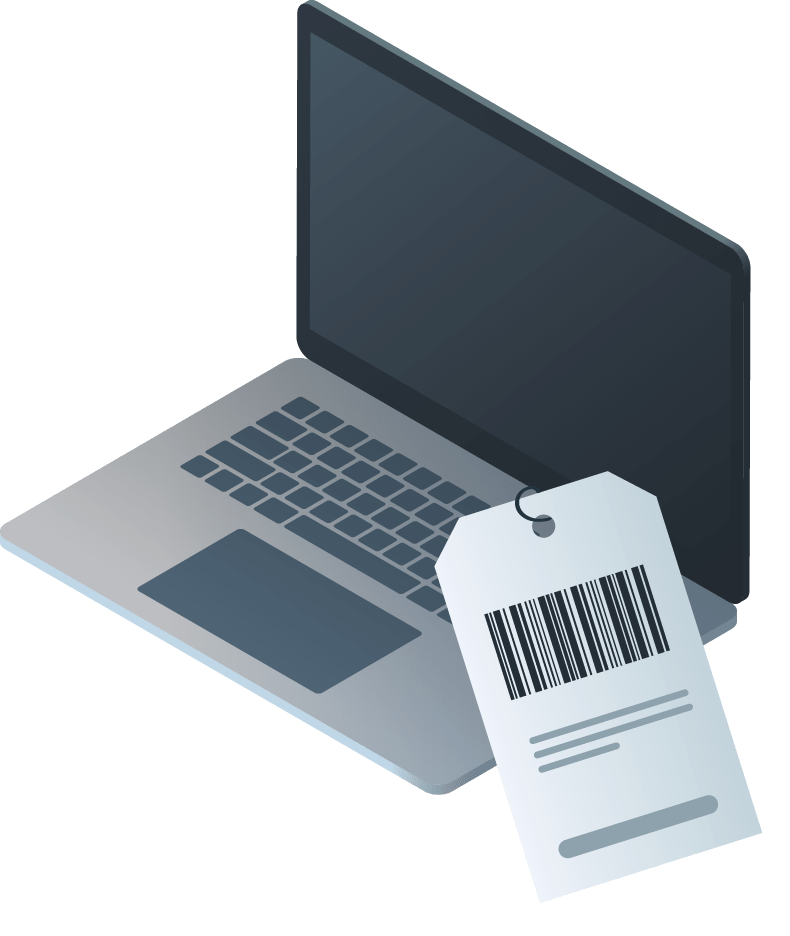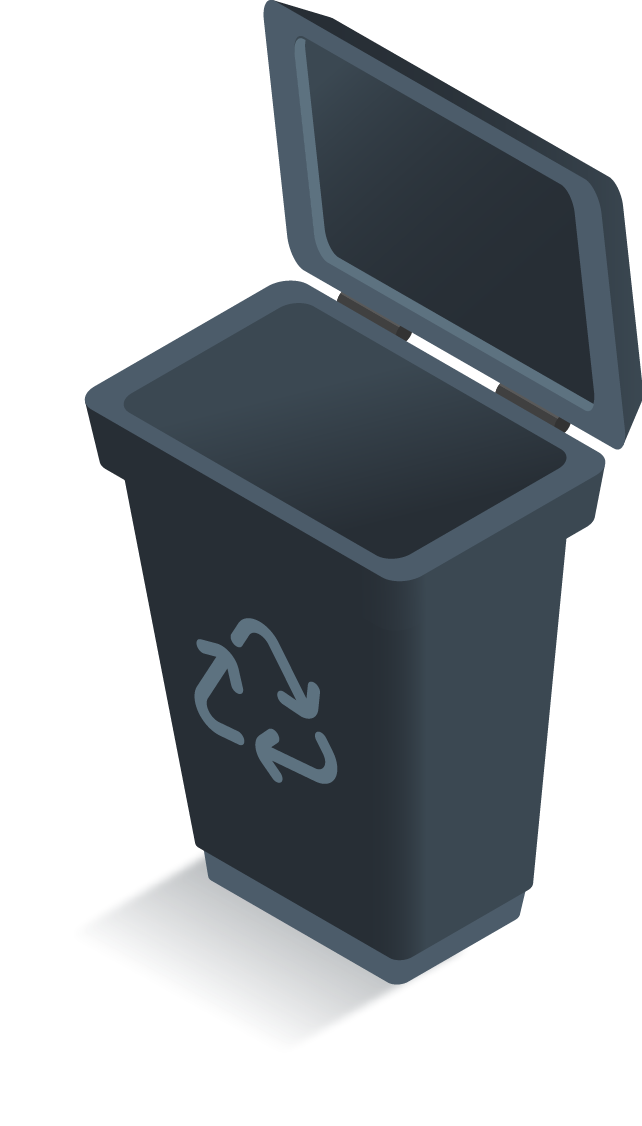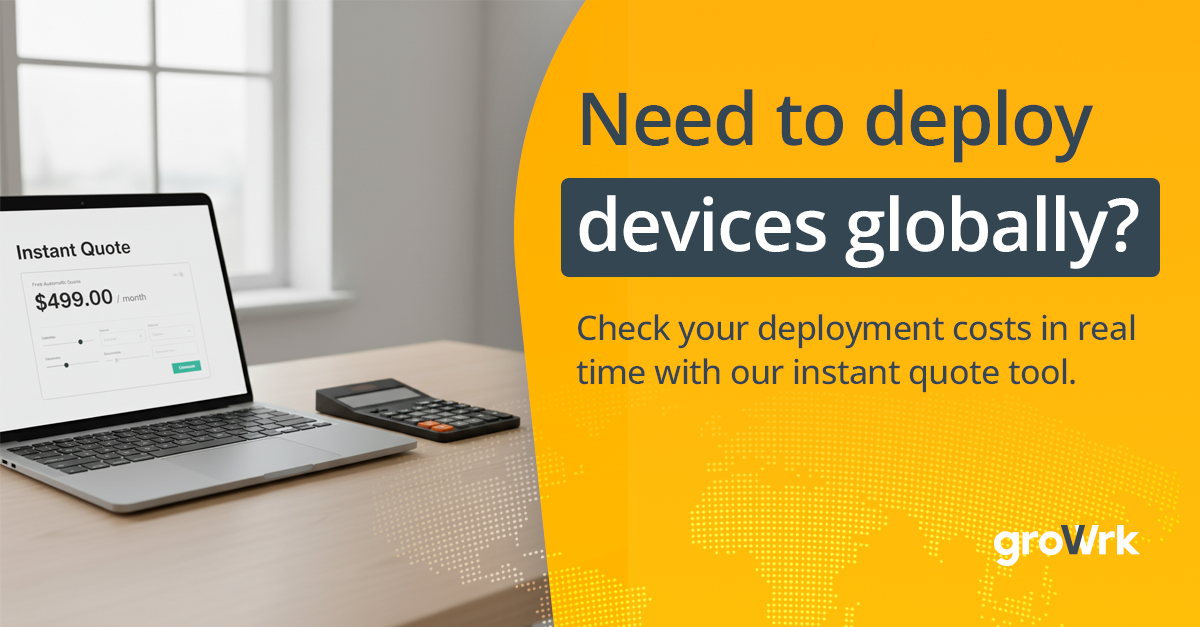How to send IT equipment to Indonesia
Empower Your Remote Teams in Indonesia with Hassle-Free IT Equipment Delivery. At GroWrk, we make it easy to equip your remote teams in Indonesia with the laptops, servers, and tech they need—seamlessly and stress-free. From smooth logistics to effortless customs clearance and full compliance, we handle every detail so you can focus on scaling your business with confidence. Let’s get your team set up for success with our detailed guide.

At a glance
Indonesia is rapidly growing as a significant hub for IT and digital innovation in Southeast Asia, fueled by a dynamic tech ecosystem and a large digital-native population. The country has been actively investing in digital infrastructure, tech education, and startup development, making it an increasingly attractive destination for IT outsourcing and remote tech teams.
|
CURRENCY Indonesian Rupiah (IDR) |
OFFICIAL LANGUAGE Indonesian (Bahasa Indonesia) |
TIME ZONE Western Indonesian Time (WIB) UTC +7. |
|
CUSTOMS DUTY ON ELECTRONICS Typically, 0% to 15% customs duties, plus 11% VAT and 10% Luxury Goods Sales Tax (LST) on imported goods. |
SHIPPING LEAD TIME 7-15 days (depending on shipping method and customs clearance) |
IT OUTSOURCING MARKET Experiencing steady growth, driven by digital transformation initiatives and the increasing demand for specialized IT services. |
Overview of IT operations in Indonesia

Growing IT sector: Indonesia's digital economy is one of the fastest-growing in Southeast Asia, with substantial expansion in e-commerce, fintech, ride-hailing, and cloud computing. Government initiatives like the "Making Indonesia 4.0" roadmap are actively supporting digital transformation and innovation across various industries.
Improving IT infrastructure: The country is continually upgrading its fiber optic networks, data centers, and broadband connectivity, particularly in major urban centers like Jakarta, Surabaya, Bandung, and Yogyakarta. The Palapa Ring project has significantly improved internet access across the archipelago.
Skilled workforce: Indonesia possesses a large and increasingly skilled pool of IT professionals proficient in software development, data analytics, cybersecurity, and digital marketing. Universities and vocational schools, alongside numerous tech bootcamps and incubators, are contributing to a growing talent pipeline.
Regulatory compliance: The country has enacted data protection regulations, most notably the Personal Data Protection Law (UU PDP) passed in 2022, which impacts IT operations, data security practices, and cross-border data transfers. Companies must adhere to these regulations to ensure compliance.
Evolving tech ecosystem: Jakarta, often dubbed the "Silicon Valley of Southeast Asia," along with cities like Bandung and Yogyakarta, are vibrant tech hubs. These cities host numerous innovation centers, co-working spaces, accelerators, and a thriving startup scene, fostering a collaborative and innovative environment.
Shipping IT equipment to Indonesia: What you need to know
| Customs regulations |
|
| Duties and taxes |
|
| Required documentation |
|
| Customs clearance process |
|
| New vs. Used equipment |
|
| Penalties or fines for non-compliance |
|
Checklist for sending laptops to Indonesia
When shipping laptops to Indonesia, it’s important to follow a few best practices to ensure the process goes smoothly, and your equipment arrives safely and on time. Here are some helpful shipping tips:

Select trusted couriers: When shipping to Indonesia, rely on experienced couriers like GroWrk, DHL, FedEx, UPS, or JNE Express. These providers are equipped to handle international shipments and are familiar with Indonesia’s complex customs procedures, reducing the risk of clearance issues.
Check service levels: Select the appropriate shipping option based on urgency. Express shipping (3-7 days) for high-priority deliveries. Standard shipping (7-15 days) for cost-effective options.
Use high-quality packaging: Secure laptops with sturdy, padded boxes and protective materials like bubble wrap, foam inserts, or air cushions to prevent damage during transit.
Disassemble where possible: If shipping accessories like chargers, docking stations, or monitors, package them separately to prevent damage. Remove detachable components if applicable.
Label clearly: Ensure the recipient’s name, address, and contact details are correctly labeled. Mark the package as "fragile" to encourage careful handling.
Accurate product descriptions: On the commercial invoice, provide a detailed and accurate description of the laptop, including its brand, model, and serial number. Inaccurate descriptions may cause customs delays.
Value declaration: Declare the correct value of the laptop to avoid under- or over-declaring, which could lead to customs inspections or fines. The declared value determines any applicable duties and taxes.
Customs declarations: You must include a commercial invoice, packing list, and air waybill. Business shipments may require the recipient’s NPWP (tax ID number), while individual shipments may require a valid Indonesian national ID or passport number for customs clearance.
Proof of origin: If the laptop qualifies for reduced duties under a free trade agreement, include a certificate of origin. Indonesia participates in several regional agreements, and this document can reduce customs duties when presented correctly.
Understand import duties & taxes: Laptops are generally subject to a 0% import duty but are still liable for 11% VAT and an additional 7.5% income tax (Article 22) based on the CIF value. Customs may also charge processing or inspection fees. Used laptops may undergo more stringent inspection and require extra documentation.
Pre-pay duties and taxes: Some couriers allow for pre-paid duties and taxes to simplify customs clearance and prevent the recipient from facing unexpected charges upon arrival.
Protect against loss or damage: Consider purchasing shipping insurance for high-value laptops to protect against loss, theft, or damage during transit.
Compliance with Indonesian regulations: If the laptop contains wireless or cellular capabilities and is being imported commercially, it may need approval from Indonesia’s Directorate General of Post and Informatics Devices Resources (SDPPI). For personal shipments, this requirement is usually waived, though inspections still occur.
Use tracking tools: Major couriers provide real-time tracking—monitor shipments closely to anticipate customs clearance updates and delivery progress.
Stay in touch with the recipient: Notify the recipient about the expected delivery timeline, tracking updates, and any customs-related requirements to avoid delays.
Expect weather and seasonal delays: Indonesia’s rainy season (typically November through March) can slow down inland transport and local delivery. National holidays such as Eid, Christmas, and Independence Day also bring customs and courier delays due to high shipment volumes.
Indonesian domestic delivery options: For final delivery, consider using local services such as JNE, TIKI, or SiCepat. These providers offer strong coverage across urban and rural regions, ensuring laptops reach recipients across Indonesia efficiently.

Average cost of IT Equipment in Indonesia
Laptops (Business Grade):
- Mid-range: $495 – $930 USD
- High-end: $930 – $1,860+ USD
High-end models such as Apple MacBook Pro, Dell XPS, and Lenovo ThinkPad are priced on the higher end.
Monitors (Business Grade):
- Standard: $93 – $248 USD
- Ultrawide/4K: $248 – $620+ USD
Monitors from trusted brands like Dell, Samsung, and LG typically range within these prices, with 4K or ultrawide models costing more.
Desktops (Business Grade):
- Standard Desktop PC: $248 – $744 USD
- Workstation Desktop (for high-performance tasks): $744 – $2,480+ USD
Prices depend on the brand and specifications, with options from HP, Lenovo, and Apple among the most common.
Printers (Laser):
- Standard Office Printers: $75 – $248 USD
- High-Volume Printers: $310 – $1,240+ USD
Leading brands such as HP, Canon, and Brother offer a wide range of models for office environments.
Public holidays & IT work hours to plan your shipment
Key public holidays in Indonesia:
- New Year’s Day – January 1
- Chinese New Year – January/February (variable)
- Isra Mi'raj (Ascension of Prophet Muhammad) – February (variable)
- Nyepi (Balinese Day of Silence/Hindu New Year) – March (variable, mostly impacts Bali)
- Good Friday – March/April (variable)
- Eid al-Fitr (Lebaran) – April (variable, usually a multi-day holiday with collective leave)
- International Labor Day – May 1
- Waisak (Buddha's Birthday) – May (variable)
- Pancasila Day – June 1
- Eid al-Adha (Day of Sacrifice) – June (variable)
- Islamic New Year – July (variable)
- Independence Day – August 17
- Prophet Muhammad's Birthday – September (variable)
- Christmas Day – December 25
Typical work hours for IT professionals
- Standard week:
- The typical workweek in Indonesia is 40 hours, usually spread over 5 working days (Monday to Friday). Standard business hours are generally from 8:00 AM or 9:00 AM to 5:00 PM or 6:00 PM, with a one-hour lunch break.
- Many IT companies, especially those serving international clients or operating within tech hubs, have adopted more flexible working arrangements, including staggered hours or hybrid work models, to accommodate different time zones or employee preferences.
- Employees typically take a lunch break of 30 minutes to 1 hour, usually between 12:00 PM and 1:00 PM or 1:00 PM and 2:00 PM. Friday lunch breaks for Muslim employees may be extended for congregational prayers.
- Overtime:
- Overtime work is regulated under Indonesian labor laws (Law No. 13 of 2003 on Manpower, as amended by the Job Creation Law).
- Employees may work a maximum of 3 hours of overtime per day and 14 hours per week.
- Overtime pay is typically calculated at 1.5 times the hourly wage for the first hour and 2 times the hourly wage for subsequent hours on weekdays. On weekends and public holidays, overtime rates are generally higher (e.g., 2 times or 3 times the hourly wage, depending on the duration).
- Employers must obtain written consent from employees for overtime work and record the hours. Some companies may offer compensatory time off, but cash compensation is more common for overtime.
- Public holidays:
- Working on public holidays is generally not required unless specifically agreed upon or necessary due to the nature of the business (e.g., critical IT support).
- If an employee works on a public holiday, they are entitled to premium pay (typically a minimum of 2 times their normal daily wage, or more depending on the duration) or an alternative day off in lieu, as stipulated by labor laws.
- Many businesses and offices, especially in the private sector, close completely during major national and religious holidays like Eid al-Fitr (Lebaran) and Christmas. This can significantly impact logistics and business operations.
What to consider when retrieving IT equipment from employees in Indonesia
| Local delivery and logistics services |
|
| Inventory management |
|
| Logistics challenges for remote locations |
|
| Equipment agreement with employees |
|
How to dispose of IT equipment in Indonesia
E-Waste Recycling:
- Certified e-waste handlers: Businesses must dispose of IT equipment through registered e-waste recycling providers in compliance with Indonesia's environmental laws.
- Municipal collection points: Some major cities have established e-waste collection points for the proper disposal of electronic equipment.
- Manufacturer take-back programs: Several electronics manufacturers have begun implementing take-back programs in Indonesia.
Data Destruction:
- Wipe data completely: Use certified software to erase all stored data to prevent unauthorized access.
Physical destruction: For highly sensitive data, consider shredding or degaussing hard drives and SSDs.
Certification: Request data erasure certificates for corporate compliance purposes.
Repurposing or Donating:
- Support education & communities: Donate working computers to schools, non-profits, or community programs in underserved areas.
Internal reuse: Older devices can be reassigned for secondary tasks before disposal.
Refurbishment programs: Partner with local refurbishment centers that can extend the life of IT equipment.
Manufacturer Recycling Programs
- Brands like Dell, HP, and Apple offer take-back programs for safe recycling or refurbishment. These programs ensure that old or used IT equipment does not end up in landfills, helping to reduce environmental impact. Many manufacturers provide incentives, such as discounts on new devices, for customers who return old equipment for proper disposal.

Local IT Outsourcing Solutions in Indonesia
You can streamline your IT logistics and asset management with GroWrk’s comprehensive global solution. Whether it’s shipping equipment or managing IT assets across multiple regions, GroWrk helps you stay compliant and efficient, every step of the way. Here’s why GroWrk is the ideal partner for managing your IT assets in Indonesia:

| 1. Wide global coverage |
GroWrk operates in 150+ countries (including Indonesia), delivering IT gear anywhere without a hitch. We know Indonesia’s rules inside out—from customs regulations to local delivery complexities—so your deployment is fast, compliant, and built for your needs. Our local teams ensure cultural nuances are understood and logistical challenges are overcome. |
| 2. End-to-end asset management |
From procurement to deployment, ongoing maintenance, and secure disposal, GroWrk manages the full lifecycle of IT assets. This allows businesses to focus on growth and core operations while ensuring smooth, secure, and compliant IT operations across various Indonesian locations, whether in Jakarta, Surabaya, or more remote areas. |
| 3. Intuitive platform for easy deployment |
Our centralized platform simplifies IT equipment management by enabling real-time tracking of assets, shipment monitoring, and providing granular asset usage insights. This reduces administrative workload, enhances operational efficiency, and provides full visibility over your IT inventory deployed across your Indonesian workforce. |
| 4. Smooth delivery and equipment retrieval |
GroWrk ensures the smooth and timely delivery of IT equipment to employees throughout Indonesia, including navigating the complexities of its diverse geography and remote locations. We also manage the seamless return of devices from departing employees, handling all logistics, customs re-export procedures, and secure data wiping, making the process cost-effective, streamlined, and hassle-free. |
| 5. Compliance with Indonesian import regulations |
We handle all aspects of IT import compliance, including navigating complex Indonesian customs clearance procedures, calculating and managing VAT, LST, PPH 22, and adhering to mandatory SNI and POSTEL electronic equipment regulations. By aligning with all Indonesian customs and regulatory requirements, GroWrk prevents delays, avoids penalties, and ensures a smooth and compliant supply chain. |
| 6. Efficient repairs and maintenance |
From routine servicing to urgent repairs, we coordinate IT equipment upkeep to minimize downtime and ensure continuous productivity. Our extensive network of expert technicians and service providers throughout Indonesia ensures that devices remain in optimal working condition, providing prompt support whether your team is in a major city or a less accessible region. |
| 7. 24/7 Support for peace of mind |
Our dedicated IT asset management support team is available round-the-clock to assist with IT asset management inquiries, logistics coordination, technical troubleshooting, and any unforeseen challenges. With GroWrk, businesses operating in Indonesia can rely on expert, responsive support anytime, ensuring their remote IT infrastructure is always running smoothly. |
Procure, configure, and deploy your IT devices from one platform


